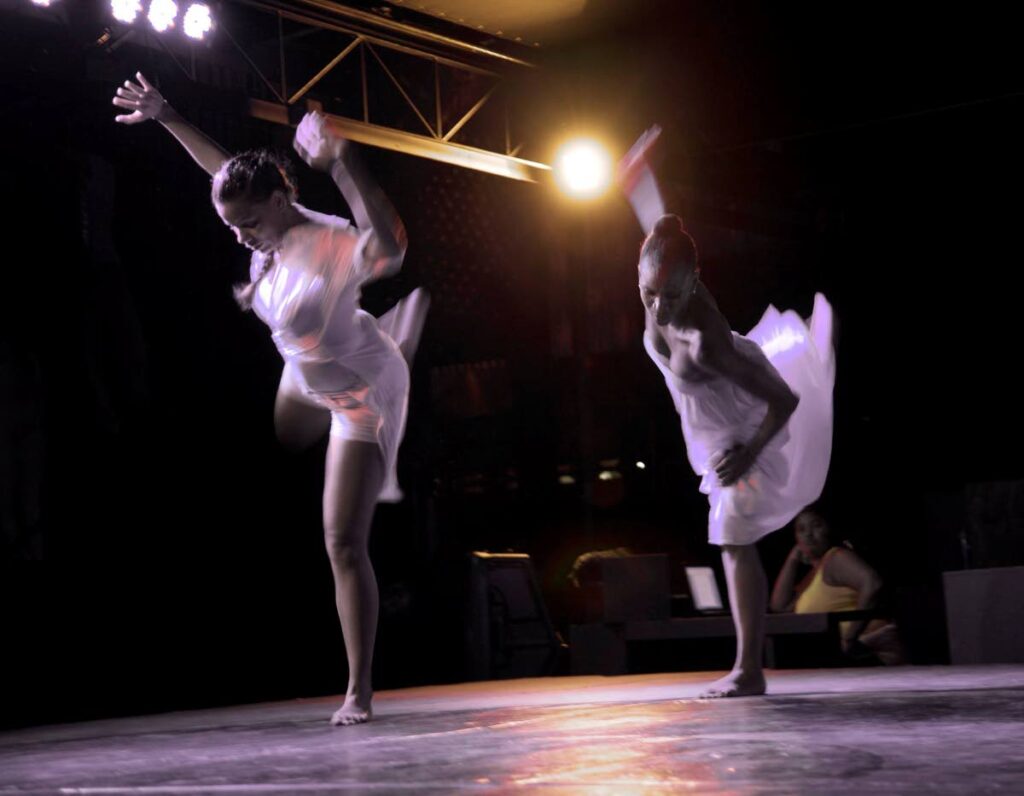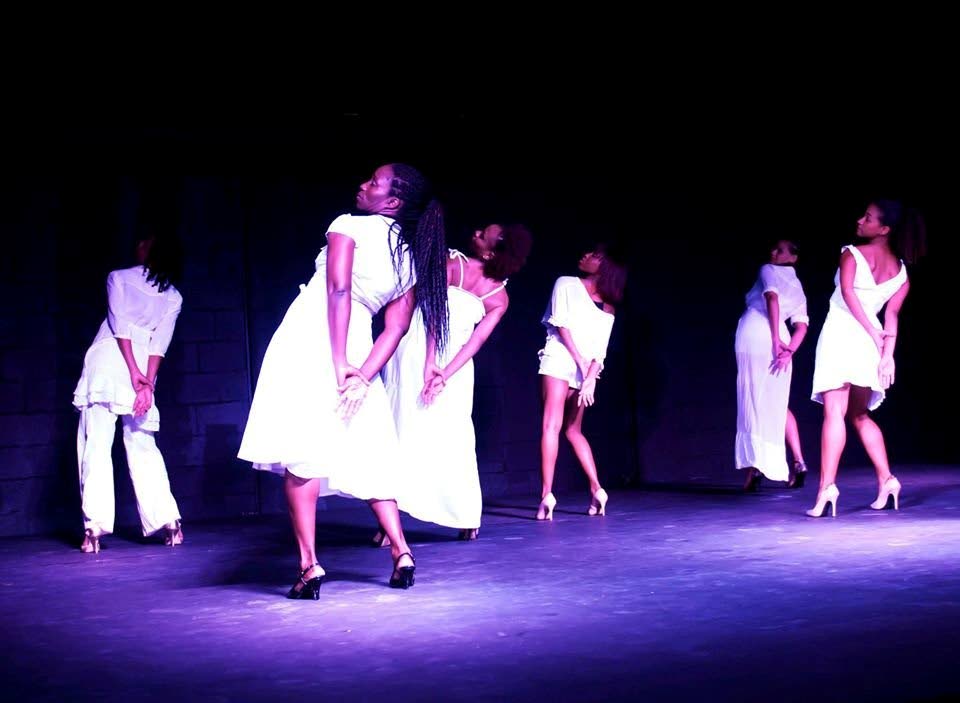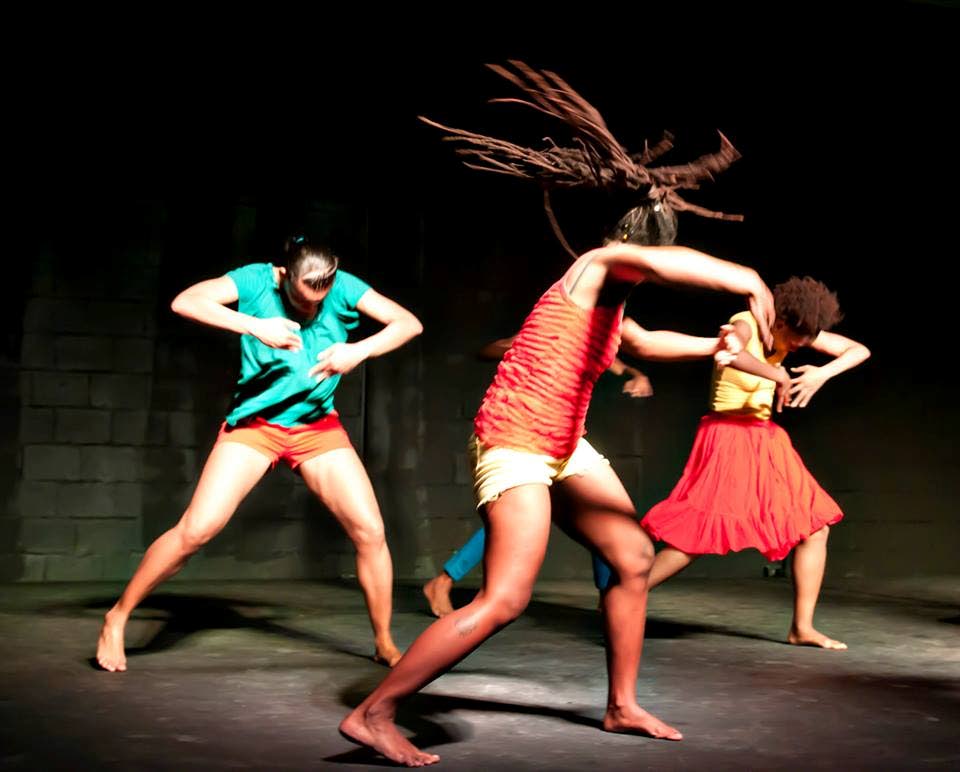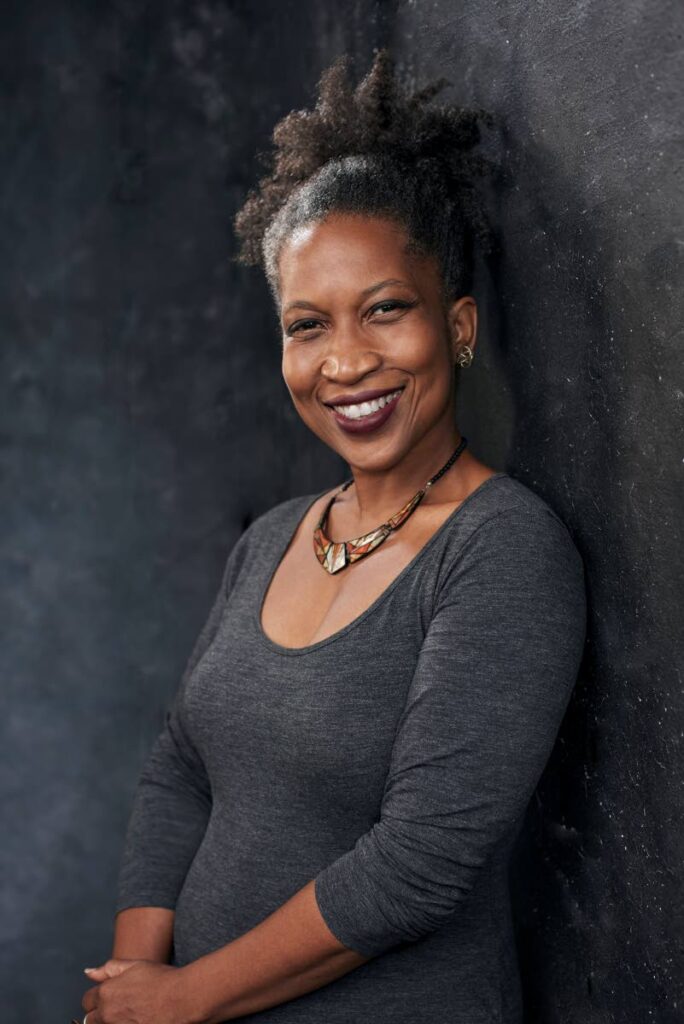Sonja Dumas curates Difficult Women at Little Carib

CHERYL METIVIER
Sonja Dumas it a talent-packed woman who wears many hats. Privileged to be living her passion, even she could not narrow her title down to a single definition. She told Sunday Newsday, “I am first and foremost a dance practitioner and a filmmaker, a writer and an educator, those are the four compartments that I fit into.”
With an academic background that is as diverse and impressive as those compartments into which she fits, Dumas received her primary education abroad, her secondary school experience at Bishop Anstey High School, and her first degree in public and international affairs at Princeton University, New Jersey, where she also studied African American studies and dance. She later did an MBA at Columbia University in New York, a master’s in Carnival studies at the University of Trinidad and Tobago, and is currently pursuing her PhD in cultural studies at the UWI.

Her latest production, Museum of Difficult Women which opens at 4pm on May 14 at the Little Carib Theatre in Woodbrook, is an upgrade of a production she did in 2014 to celebrate the tenth anniversary of her company Continuum Dance Project. Dumas has a long-standing love for museums, and as curator, she said this one offers a display of different women in the Caribbean – the women described as "difficult" but who are really just non-traditional in their approach to life and live out loudly and unapologetically in spite of the prejudices that may result. The production is driven by the love of her craft, and her appreciation of those who have stood with her and those who have gone before her, disrupting the norms to create a space for other women like her; "difficult women."
Scripted and choreographed by Dumas, the production is intended to honour the many aspects of Caribbean women who have gone against the grain and have chosen the path of greatest resistance – among whom she is grateful to be counted. Elements of the script will be orated and woven together by raconteur, Cecelia Salazar. She said in executing this work, as in all her undertakings, she “challenges herself to be as thorough and in-depth as possible” by researching her content extensively and bringing the portrayal of the honourees to life. She warns that the story is not a linear one – with a beginning, middle and an end – but more of an abstract production where you are not likely to see too much specificity, but rather experience resonance and familiarity with the characters being portrayed. As they come alive, she expects different elements of those characters being portrayed to connect with the audience individually and collectively.

"These women do not toe the line, comply or act as expected. They rebel."
Paradoxically, Dumas noted that though many women may not publicly manifest their ‘difficult’ sides, she believes it is something that is present in all women – the strong willed, the rebellious, the very determined.
"She resides in us all, and I’m hoping that this comes out in the mix in this revival of the Museum of Difficult Women.”
Dumas said for those who had the privilege of seeing the original 2014 version, there will be an addition of a number of "fierce" Caribbean women who have emerged since then. Describing it as "varied and immersive" Dumas said this is the kind of production that should be shared with a far wider audience than the Little Carib Theatre can accommodate, but the financial constraints that affects the creative sector have dictated its "life-span."

She laments that in a country that is as culturally rich and diverse as TT, there continues to be such a heavy reliance on the arts surviving only as a labour of love, and that financial support continues to be so very limited.
“People always think that the pie is seemingly big, but…everybody goes to the same set of corporate or government entities to get money, and it’s very difficult, it’s highly competitive…” The arts are not viewed as being profit-driven, or in the same way as mainstream entertainment such as Carnival fetes and events where large gate receipts and overwhelming corporate sponsorship are standard. The traditional arts, with performances at small theatres and venues are incapable of competing with that.
She said as a nation there appears to be a level of apathy towards the arts, and posits that in the same way funding is made available for research in traditional sciences, dance for example, should be financed and supported during the "experimental" phases. Dance theatres should be considered laboratories, where the craft is incubated, and skills are fine-tuned and perfected; and during that process, practitioners should be able to earn a living wage. The reality for many in the creative sphere is that in order to excel they must choose between living and producing.
“There needs to be a shift in consciousness about what the arts are…it is a lot of process before you get to the product. And I think that the process part of it, needs to be supported financially.”
This, she said, requires a culture shift – one she believes can be achieved by focusing on our youngest population first. This is the reason she started the Zum-Zum museum in which children get to experience and learn about their culture. This project was birthed in 2019/2020 and lost momentum during the pandemic. Efforts are being made to resume with a mission to get the zero to 12 demographic to understand more about their environment in a space created exclusively to allow children to fully and freely express themselves by simply creating. Tech Times in the Tropics is the title of an art display that has been on exhibit at the museum at Belmont Circular Road for some time and remains available for viewing. The display includes "old tech" such as rotary phones. In addition, the children are encouraged to create their own technology and are exposed to learning to do so sustainably by recycling and upcycling, setting them on the path to critical thinking.
She said another project that targeted children and offered them an opportunity to appreciate the value of the arts was a partnership she did with a primary school, where a small Carnival band was designed using old cardboard boxes, branches and discarded Carnival costume pieces to create burrokeets. Dumas said she will continue to work hard to stay true to her "heartbeat" which is dance, and to her desire to always be useful by “producing and supporting work that is trying to be the best of Trinidad and Tobago culture.”
Ticket for Museum of Difficult Women will be available at the Little Carib Theatre up till show time.

Comments
"Sonja Dumas curates Difficult Women at Little Carib"